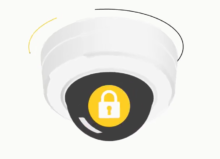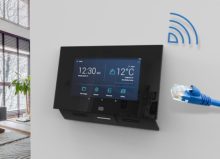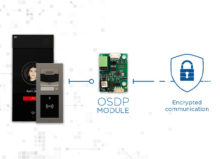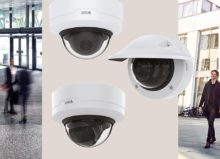8 questions to ask when choosing a provider for your end-to-end surveillance solution
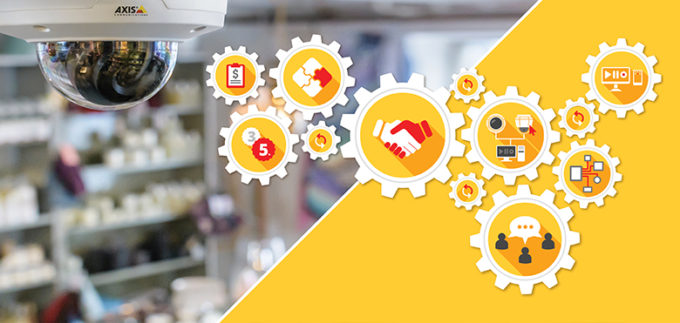
If you’re in the market for a video surveillance system, there are many options to choose from. The first question you might ask yourself is: What kind of system is right for me? Should I go with a best-of-breed system or a complete end-to-end solution? In our previous blog post, we discuss why an end-to-end solution may be best for you.
When you start to consider a solutions provider for your next system, start by thinking about where your system currently is and where you want it to be. For example, does the system need to work cohesively with your existing systems, such as HVAC, alarms and access control products? Or do you want (and have the capability) to completely rip out and replace the old system with an end-to-end solution that fits all of your security and business needs?
A best-of-breed system allows you to mix and match hardware and software and integrate them with other systems. Sure, there are some enterprise-level security systems that benefit from best-of-breed and open platforms. But there are many users whose requirements can benefit from the simplicity that comes along with an end-to-end solution.
If you opt for simplicity, an end-to-end solution from a single provider is likely the answer. These single-source solutions bundle video management software, network cameras, and network video recorders into one easy-to-use and easy-to-manage package.
If you decide an end-to-end solution is the right path for you, choosing the right end-to-end solutions provider becomes the keystone to achieving your security goals. This is especially true if you need to migrate from multiple providers into an end-to-end solution.
So how do you pick the right provider? Here are eight questions to consider that can help you make the right choice.
- Will the end-to-end solutions provider be a trusted and innovative partner for my organization?
A trusted partnership is a long-term relationship. At minimum, the solutions provider should deliver quality products that result in a reliable modern video surveillance system. The cameras, video management system, and network video recorder should be validated through quality assurance. This will ensure they work seamlessly together right out of the box. And it should be backed by an extensive warranty.
But the solution shouldn’t stop there. Innovation—which includes new ways of thinking, new technology, and new features—drives the surveillance industry forward. An innovative provider can help you continue getting more out of your system’s investment year after year.
That provider should also work endlessly to ensure your investment is well-protected so you can get the most of it for a long time. How? By investing in ways you can secure your devices from cyberattacks. Given the increase and severity of cyberattacks in nearly every industry, it’s critical this provider also places cybersecurity at the core of their development strategy. They should offer tools so you can easily perform device management tasks.
2. How do other customers rate the provider’s support?
Working with one end-to-end solutions provider for your entire solution means relying on them for everything from design to deployment, ongoing updates, and more. With only one place to turn, the provider’s responsiveness needs to be top-notch. How can you confirm this? Simple, conduct some research!
Before deciding on a provider, ask other customers how their experience has been with the provider’s support teams, pre- and post-sales. Verify the solution is backed by a team of support specialists with in-depth knowledge and experience of every component so they can quickly address issues that might arise.
After all, the last thing you want is a delay in resolution that could leave you vulnerable to outside threats or to miss important video events. It will save you a lot of headaches in the long run.
3. Does the solutions provider offer tools to help my integrator easily verify my design and installation?
Unless you have in-house expertise, you may rely on an integrator to design, install, and maintain your system to your specifications. When you’re selecting an end-to-end solution provider, consider how they can help your integrator ensure a “job well done.”
For example:
- Do they offer integrators simple design tools?
- Can those tools generate verification documentation that proves the system you were quoted is what has actually been installed?
- Does the tool generate documentation that shows the system has been stress-tested and everything is working as it should?
Having this kind of information readily available gives everyone peace of mind that the system is meeting expectations. More so, designing, installing, and configuring your solution correctly at the outset can reduce labor costs and prevent post-installation nightmares. A provider with a complete set of tools really takes the guesswork out of design and installation to ensure everything works seamlessly together from the start.
4. How simple is the end-to-end solution to use and maintain?
Going with a single end-to-end solutions provider doesn’t mean settling for a basic or cookie-cutter solution. In fact, it should be the opposite. You can invest in a robust system and still have a solution that’s easy for novice or occasional users to manage. Look for an end-to-end solution that strikes a balance between breadth of features, customizability, ease of use, and maintenance.
How you plan to use the solution will determine what functionality you’ll need.
- Will security guards be actively monitoring the video? If so, you’ll want a solution that can incorporate maps, guard tours of cameras, and can display multiple camera views across many monitors.
- Will you only use the system to occasionally view recorded video? If so, you’ll want a system that is highly intuitive and customizable so you can quickly search for and save the video without having to re-read the user manual.
- Does your organization have strict guidelines on privacy? If so, you should work with a provider that offers a solution that includes video redaction software at no extra cost. This masks the identify of specific individuals before you export the video to law enforcement or other interested parties. Typically, only third-party providers offer this service for a very expensive fee.
- Will you require remote accessibility? If so, you’ll want a mobile app to perform specific tasks remotely. With a mobile app, you can use your smart phone to see and talk to a caller at a video door station, deliver a warning message over a loud speaker, or even unlock a door, close shutters, and raise barriers when you’re away from the office.
Additionally, just like an automobile, a video surveillance system requires maintenance to ensure optimal performance and cybersecurity. To take the guesswork out of this task, a provider’s solution should include an intelligent maintenance program that can automatically inform you and your integrator when something isn’t quite right. It should alert you to major concerns, such as a camera that has gone offline or that you’re running low on storage. It should also notify you when new software or firmware is available—especially those that mitigate the latest cyberthreats—and provide an easy way to update multiple devices simultaneously.
You’ll also want a feature-rich video management system that can bring everything seamlessly together into one intuitive, simple-to-operate solution.
5. Can the end-to-end solution scale with my business?
Your needs often change over time and as security threats evolve. So it’s important to determine upfront whether the end-to-end solution provider has the potential for expansion.
For example, let’s say your business has multiple locations and is using a network surveillance solution to manage security. However, you’re finding it near impossible to curtail illegal dumping that’s taking place behind some of your properties. To enhance your ability to catch someone red handed, you need to be able to easily scale your current system by adding network cameras coupled with analytics. This will identify, track, and report the incident immediately and automatically.
This kind of scalability allows you to expand your system as your business grows or your needs evolve.
From there, you may also want to augment your solution to ensure only the right people gain entrance. You can accomplish this by adding other security devices like access control including door stations, key card readers, and video intercoms. You might even want your system to proactively warn away intruders by tying in horn speakers. In this example, the network cameras can detect unwanted activity and trigger the horn speaker to say, “We can see you; you are trespassing. Please leave immediately.” We discuss how network audio solutions can play a pivotal role in security in one of our other blog posts.
The last thing you want is to invest in a system you’ll quickly outgrow, leaving you to face an expensive replacement you didn’t expect.
6. Will the provider’s solution work with my existing infrastructure investments?
You may not have the budget to completely upgrade your system: swapping out the VMS, NVR, and cameras all at the same time. A new end-to-end solution should be able to integrate with your existing infrastructure. Before you decide on a specific provider make sure it supports an easy way to swap out cameras, network video recorders, and other components when they reach their end of life or as you free up budget to invest in newer, more advanced technology.
7. Does the provider have any hidden fees I need to worry about?
Staying on budget can be challenging for anyone responsible for deploying a video surveillance solution. So check the fine print before signing on the dotted line. Make sure you know all of the upfront costs as well as any recurring costs that might be associated with software and services.
There are a few pointed questions you’ll likely want to ask a potential end-to-end solution provider:
- Does the provider charge a one-time licensing fee or use an annual renewal model?
- Do they charge additional fees for upgrades, support, or services?
- Do they give you access to all the software features, or will you have to pay to unlock certain functions?
Surprises are great for birthdays, but not so great for security budgets. You want to partner with a provider who spells out all the solution costs right from the start so you can budget accordingly. This also makes it easier for you to free up funds for other priorities in the future.
8. What will be the total long-term cost of my end-to-end solution?
The total cost of owning and operating a video surveillance solution typically doesn’t end after the initial purchase. You need to look at the entire life of the system. With quality products, your solution can last longer which keeps costs down and limits opportunities for problems.
Some things you might look for that can keep the total cost low:
- A solid warranty: An end-to-end solutions provider that has a solid warranty protects you in case something does go wrong. A failing camera is bad enough. Struggling with a limited warranty or no warranty at all only makes the situation worse. Select a provider who offers a clear and extendable warranty with benefits like advanced replacement parts.
- Long mean times between failures: Make sure the selected cameras and other products have low out-of-the-box failure rates and a long mean time between failures once they’re in operation. Don’t be shy about asking the manufacturer for those statistics. Those numbers translate into devices that get up and running quickly and have long lifetimes. So you’ll have to replace them less often which is a bonus to your budget.
- Advanced video compression: Storage costs tend to skyrocket over time when you add new devices or have strict retention requirements. To get the most out of what you’ve already paid for, confirm that the provider’s solution incorporates advanced video compression technologies that can reduce your overall storage needs.
Choose a provider that covers you from end-to-end
In this economy, you want to be as cost-conscious as possible without having to compromise your video surveillance goals. When weighing security system options, look at all the costs, both the upfront investment and the costs to operate and maintain your technology over its lifetime. Look for a reliable system that can grow over time as your needs change. Look for a trusted partner who meticulously checks each component and the entire system to ensure everything works together seamlessly. And lastly, choose an end-to-end solution provider who provides the tools and support to design, install, and maintain a surveillance solution that meets your security needs.
Source: https://www.axis.com/blog/secure-insights/choosing-provider-for-end-to-end-solution/





